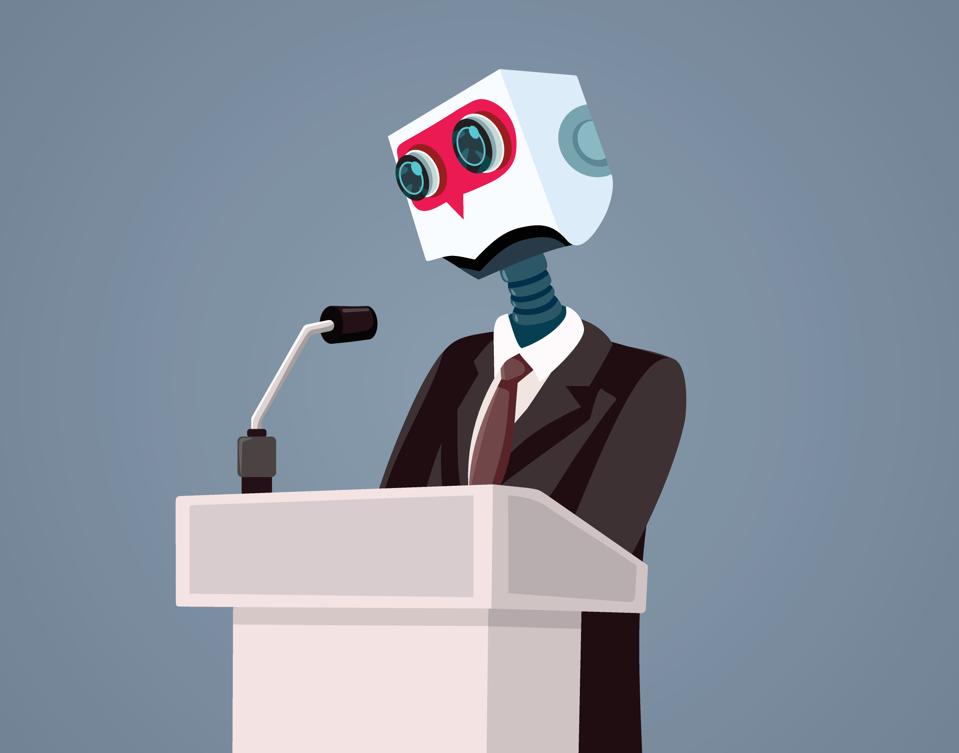
Albania recently made history by appointing an “AI minister”. The move could redefine trust, power and accountability in government.
getty
Albania introduced an AI system last month to serve as a minister in the government, a first-of-its-kind development by a nation state. The news came as a shock, even to many who have been keen observers in the AI industry over the last three years. Albania, a Balkan nation of 2.8 million people, said the virtual figure Diella, an AI system that started the year aiding individuals with digital paperwork, would be promoted to a cabinet-level position to manage public procurement.
The government framed it as a software system that would score tenders only on merit, with no bribes, favors or fear. Depending on whom you ask, it’s either a world first in anti-corruption or a risky experiment wrapped in political theater. Either way, it’s real and live.
What Actually Changed And What Didn’t
Diella is not a finance minister. It’s a virtual “minister” focused on public procurement, the system that determines who wins government contracts. The role builds on Diella’s earlier function as an e-government assistant, now extended to decisions that have serious financial and political consequences.
Reuters, The Guardian and other media outlets reported that the AI will gradually take on responsibility for awarding tenders, with the aim of reducing human influence in a process often linked to favoritism.
What remains unclear, however, is how this will actually work. When a losing bidder challenges an award, who is accountable — the prime minister, a supervising human official, the vendor behind the model or no one at all? So far, the Albanian government hasn’t fully explained how accountability will be handled.
It’s also important to be clear about what Diella actually is and what it is not. While Albania’s government may describe the AI system as fair and efficient, people still decide what data it uses and how it makes decisions. Because even though an AI system can’t take a bribe, people can still influence its results. So, whether the system is trustworthy depends on how it is managed, not on the technology itself.
Why Public Procurement?
Public procurement is where government decisions directly meet spending. Globally, it involves trillions of dollars every year and often makes up a large share of national budgets. For countries trying to grow their economies, reduce waste and build trust with investors or regional partners, fixing how tenders are managed can deliver quick, visible results. That’s why Diella’s new role matters. It targets one of the few areas that can genuinely change how a government works.
As Tech Policy Press put it, “procurement plays a powerful role in shaping critical decisions about AI. In the absence of federal regulation of AI vendors, procurement remains one of the few levers governments have to push for public values, such as safety, non-discrimination, privacy and accountability.”
It’s a point that applies everywhere. Whether in the U.S., Europe or Albania, governments that either buy, build or deploy AI systems carry the same duty to set clear standards and protect public interest.
Albania’s timing wasn’t accidental, as the country wants to join the European Union. The EU’s AI Act took effect for general-purpose AI models back in August, and new obligations are already starting to shape how European governments design and deploy AI systems, with more detailed requirements set to follow over the next two years.
Bringing Albania’s procurement system closer to EU standards isn’t just about internal reform — it’s also a political message. And if Diella uses or connects with general-purpose AI models, it will have to meet the EU’s expectations for transparency, documentation and safety, whether Albania is a member or not.
The Blind Spots
Two things can be true at once: Algorithmic procurement can reduce certain abuses, and it can also introduce new ones. The real danger isn’t the algorithm itself, but the system surrounding it. If government staff or vendors can quietly adjust how bids are scored, or if the data used to train the AI already carries bias, the process won’t be fairer — it will just hide the same old problems behind a digital curtain.
That’s why the real focus should be on how the system is governed. There should be independent reviews, transparent records that can’t be changed in secret, clear documentation of how the AI works, fair ways for bidders to challenge decisions and public reports on how the system performs. These are essential elements that enhance the trustworthiness of the process.
There’s also a democratic angle that’s easy to miss amid the hype. As Columbia University’s Data Science Institute warned in May, “Ensuring that the design and use of these tools reflect citizens’ values and the public interest is vital to preserving legitimacy and democratic accountability.” Procurement decisions determine who builds roads, hospitals and schools. If citizens don’t understand the rules or can’t challenge outcomes, that erodes trust, even if the numbers on paper look better.
Finally, there’s the question of precedent. Some headlines have tried to analogize Diella to “robot judges” or algorithmic decision-makers in courts. That’s not what’s happening here. This is a procurement experiment with ministerial branding, not an AI magistrate, and that distinction is important. It keeps the analysis grounded in what the system is actually supposed to do — evaluate bids — and in the specific safeguards that are appropriate to that task.
Ripple Effect
If Albania’s experiment actually delivers results that lead to quicker decisions, more bidders, lower costs and fewer disputes, other countries will certainly take notice. And that’s especially because governments everywhere face the same problems: Small teams, messy data, uneven evaluation methods and doubts about fairness. A clear example of how automation and transparency may enhance these results would spread quickly, especially in nations where public procurement is a large part of the budget.
But for the project to be taken seriously, there needs to be actual transparency, not just a promise. The government should make the scoring methods, update logs and quarterly results on competition, savings and appeals available to the public. It should also allow independent audits and publish their findings. That’s how the public can see that the system’s decisions are clear and traceable, not buried in technical jargon. It’s also how Albania can meet the transparency and accountability standards now expected by governments across Europe and beyond.
This change could also have knock-on effects beyond Albania. If governments everywhere start asking for clear records, safety checks and independent reviews in procurement, companies will begin to make those standards a common practice. That could make AI safer and more useful for everyone over time.
The Bottom Line
Albania hasn’t turned its finances over to a machine. What it has done is place public procurement, one of its most sensitive spending processes, under a new system powered by AI, then given that system the symbolic title of “minister.” The real question isn’t if the idea sounds modern, but whether it’s governed responsibly.
The success of this experiment will depend on how it’s monitored and reviewed. This means having clear monitoring, open audits, explicit rules and fair appeal processes. If those protections are explicitly spelt out and enforced in public, Diella could show how AI can make governance fairer. If not, it risks proving what critics already fear: That automating a flawed process only hides the flaws.

